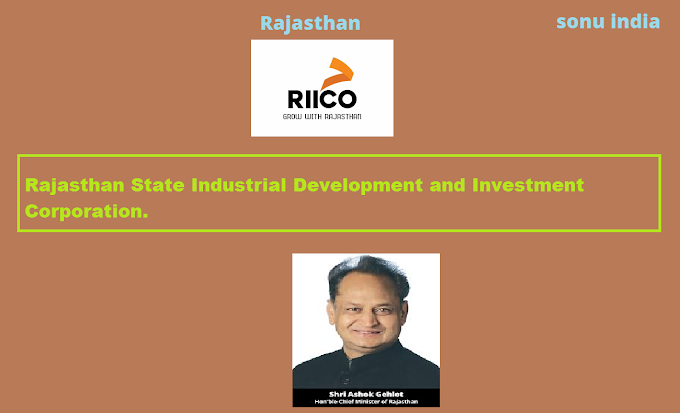Patel was a leader of the Congress party, a lawyer by profession and as the first home minister and deputy prime minister of India, he is credited largely with the unification of the princely states in India after independence from the British. Born in Nadiad, Gujarat on October 31, 1875, Patel finished his schooling in his native city in the year 1897, following which he decided to pursue a course in Law.
• He achieved significant success as a defence lawyer and his interest grew in the field and in 1910, he sailed for Britain to continue his studies as a Barrister.
• Upon completion of his studies in Britain, Patel returned to Indian in 1913 and continued practising law in Ahmedabad in Gujarat, where he got initiated into the then political system in 1917, as the sanitation commissioner.
• Patel was a prominent presence in all the protests and satyagrahas against the British, during which his association with Mahatma Gandhi began to grow. In his entire political career, Patel accepted the leadership and ways of Gandhi during the independence struggle.
• Patel spearheaded many protests during peak Swarajya or the self-rule movement. He also presided over the 46th session of Congress in 1931.
• Post Independence, Patel was handed the home ministry and also became the first deputy PM of India. His efforts in strengthening the Union by integrating multiple tiny and large princely states earned him the title ‘Iron man of India’ and for which he is remembered till date.
• He also contributed largely to restoring peace and order in regions that were ravaged by communal violence and mass migrations during the India Pakistan partition.
• His birthday on October 31 is celebrated as National Unity day or Ekta Diwas to honour his contributions in unifying India.
• To mark his significance during the independence struggle and his contributions to independent India, Prime Minister Narendra Modi inaugurated the Statue of Unity, a colossal statue of Sardar Vallabhbhai Patel on October 31, 2018.
Vallabhbhai Patel was a man of his words. His childhood was very humble, but it showed signs of his strong character and will. There are numerous incidents that made him the iron man of India. These incidents of his life made him, one of the prophetic leaders of India and that is why he is so popular everywhere in the world. As a child, he was strong. Both mentally and physically and that carried throughout his life. It was his hard work and intelligence that made him “Iron man”. In this context, we will try to figure out why Vallabhbhai Patel is called the Ironman or how he earned the d this title.
Sardar Patel has delivered such a policy for protecting, uniting and developing country called The Hindustan, after Kautilya Vishnu Gupta Chanakya. When the British govt has declared Independent by giving rights to the princely state. British policy Intent to make India apart into small princely states. So, later on, whenever needed these small states can easily be conquered by other countries. Patel has understood their policy very well and decided to make one united Independent country that can represent as the Republic of India.
It was for the independence of the princely states by the government of the UK. Those days the British was playing an ugly game in which they planned to make these princely states independent so that later they can be attacked by other countries and get conquered. This was ugly tactics that the British planned, but there was one man who stood informed of all these. Patel realized the fact and that is when he decided to use whatever he can to make the Indian Republic. It was his effort that India is now the largest democracy. He went to all princely states and asked the kings to be part of one India. The kings were so much impressed with the patriotic emotions of Patel that most of them agreed. And for those who declined the offer, Sardar threatens them saying that they will have to face them if they are not in their favor. Soon the odds too were in the favor of the Sardar. It was Sardar who first understood the policy well and decided to bring India together. He was the one who started the dream of Republic India and here we are today the largest democracy in the world. He argued with the odd telling them that they have to be with him or they have to face the largest army in the world.
Sardar Patel treated Armpit Boil with Heated Iron Rod
During his childhood, there were many incidents that made him earn the reputation of a strong man. Once he developed a boil in his armpit and during those days in his village, the people used to go to a man who can treat this. This man used to heat an iron rod and put in the boil area and that is how he used to treat a boil. Nevertheless, in the case of Patel, he was a little reluctant as he was very young. But the young Patel asked him to do it fast as the rod will become cold if they delay. Then he did not wait for him to do that lashing and he did it by himself. That was when young Patel stunned everyone in the village. He was tough and he was hard working. He borrowed books from lawyers and within a time limit of two years, he completed his studies. He was physically very strong from his tender gaze. According to many people he used to fast twice a month and those two days long fast that included refraining from food and water. His strong character was seen in those days by many people. His mental strength came when he was in England and he finished his studies in just a few years. Everyone was amazed to see a guy topping every exam who didn’t even have any formal education. Patel was a strong believer in vegetarianism. That is why preached his whole life.
When his beloved wife despised, he was handed a note and he was in the courtroom fighting a case. When Patel came back to India it was his strong will that made him what people call him an iron man. When everything fails, the British government decided to pay a policy in which all the tiny states which were more than 500 would be freed independently. Although it was seen as freedom first, Sardar understood their tactic and then it was Gandhiji who gave him the responsibility of unifying India. Then Patel started his plan and he used Saam-Daam-Dand-Bhed’ that means friendship, give-and-take, punishment, and divide-and-rule. That was the time when most of the kings agreed to Sardar’s agreement to be one Indian and those who disagreed were forced to agree for the better future of India. The British were forced to withdraw everything from India and that is when India became united.
Patel said if we have power than we have to use to achieve a goal. If this power is stopping you from achieving a goal, you have to immediately leave this power which leads you to the wrong direction. He met all states king and impressed with his devotees to the nation and ask them to join the biggest democracy of the world. some states have declined to be part of India so that Sardar has to use the power to make them surrender their states for India like an example of Hydrabadi Nizam. Sardar said to be part of India or get ready to fight against the biggest army of the world. Kashmir issue left behind only when Nehru did not listen to Sardar Patel and we are still suffering ugly policy of first prime minister of India (Jawaharlal Nehru).
He did not hesitate in using the policy of ‘Saam-Daam-Dand-Bhed’ (friendship, give-and-take, punishment, and divide-and-rule) to achieve a goal that helps to build India.
This was the tale, a heroic tale that made the soldier the iron man of Indian politics. His mental abilities were far ahead than anyone else in those days and his physical strength was legendary. That is why Vallabhbhai Patel is known as the Iron Man of India or the steel man of India. There are many other events have made him "Loh Purush" means Iron man of India.
In 1942 Sardar Patel extended his unwavering support to Mahatma Gandhi for the Quit India Movement. He traveled throughout the country and gathered support for the Quit India movement and was arrested again in 1942. He was imprisoned in the Ahmednagar fort till 1945 along with other Congress leaders.
As the first Deputy Prime Minister and Home Minister of India, he took up the task of integrating the princely states into the Republic of India at the request of Mahatma Gandhi. He was the de facto Supreme Commander-in-chief of the Indian army during the political integration of India and the Indo-Pakistani War of 1947.
He is the architect of independent India and united a scattered nation without any bloodshed. He was posthumously awarded the Bharat Ratna in 1991.
Why Sardar Patel is known as "Iron Man of India"
A charismatic leader who spoke straight from his heart respected the opinion of those who disagreed with him – Sardar Patel, strongly believed in the unity of Indians who fought the British together and their ability to progress from ‘Swarajya’ to ‘Surajya’. He was a staunch believer in equality, stood for women empowerment and self-sufficiency through rapid industrialization.
Integration of 562 princely states into the Republic of India
Diplomacy, negotiations and his great foresight helped Sardar Patel integrate the numerous princely states into the Indian Union without bloodshed. His efforts in uniting a scattered nation live on as his biggest legacy, where his powers of persuasion and his statesmanship came into full play.
Contributions to the Constituent Assembly
Sardar Patel played an important role in the selection of members of the drafting committee. He took a strong stand on key issues such as fundamental rights, the position of the prime minister, the election procedure of the President and the status of Kashmir. He worked to ensure that the princely states accepted the constitution of India – a pivotal step towards unification of India.
The founder of Modern All India Services
Sardar Patel was instrumental in the founding the Indian Administrative Service and the Indian Police Service. He ensured the defense of Indian civil servants from political attack and is remembered as the "patron saint" of India's services.
The protector of Kashmir
In September of 1947, when Pakistan attempted to invade Kashmir, Sardar Patel ruthlessly protected Kashmir from Pakistan. Nehru passed on reports to Patel that forces in Pakistan were “making preps to enter Kashmir in large numbers”. On October 26, at a meeting held in Nehru’s house, Patel promised Mehr Chand Mahajan, the Prime Minister of Maharaja Hari Singh, that India will extend her unwavering support to Kashmir.
A strong leader of the Non-cooperation Movement
During the Non-Cooperation Movement, he toured the country and recruited 300,000 members and collected Rs 15 lakhs towards the party fund. His support to the Non-cooperation movement and Gandhian ideals of satyagraha, aided by his oratory skills – short but straight from the heart, would mark the beginning of mass participation in the Indian freedom struggle.
The ‘Sardar’ of Indian satyagraha in absence of Gandhiji
He led the Satyagraha in Nagpur in 1923 against the British law banning the hoisting of the Indian flag. He was a great orator, leader, and unifier who in the absence of Mahatmaji kept the spirits of the satyagraha. Patel negotiated a settlement, which involved the release of prisoners and hoisting of the national flag in public.
A strong voice against untouchability, caste discrimination and a voice for the emancipation of women
In 1922 a session of the Indian National Congress, when Sardar Patel a separate enclosure for the Dalits, instead of occupying a seat earmarked for him in the main enclosure, he straightway proceeded to the enclosure meant for Dalits and sat there and delivered his speech from that enclosure.
During the Bardoli Satyagraha, Sardar Patel consulted with a large number of women to prepare the strategy of the Satyagraha and brought them into the lexicon of politics. Sardar Patel’s support to the Hindu Code Bill brought out his commitment to the rights of women and their empowerment, by ensuring every citizen was treated equally.
The strongest advocate of Secular India
In June 1947, when he was suggested that India should be declared a Hindu state, with Hinduism as the official religion, Sardar Patel rejected the suggestion. Sardar Patel strongly endorsed Mahatmaji’s vision for a Secular India, and said: “we must not forget that there are other minorities whose protection is our primary responsibility “. In 1950, he declared that “Ours is a secular state and we cannot fashion our politics in the way Pakistan is doing it. Here every Muslim should feel that he is an Indian citizen and has equal rights as an Indian “.
Iron fist against the perpetrators of Mahatmaji’s assassination
Sardar Patel banned the RSS after the assassination of Mahatma Gandhi. In a letter to Shyama Prasad Mukherjee written on 18 July 1948, Sardar Patel said “as [a] result of the activities of these two bodies [the RSS and Hindu Mahasabha], particularly the former, an atmosphere was created in the country in which such a ghastly tragedy became possible. There is no doubt in my mind the extreme section of Hindu Mahasabha was involved in this conspiracy. The activities of the RSS constituted a clear threat to the existence of the Government and the State.
A strong voice for communal harmony and against violence
In 1949, a mob descended upon the Babri Masjid, chased away the muezzin, installed an idol of Ram in an attempt to claim it as a temple. Sardar Patel wrote to the then chief minister of Uttar Pradesh, GB Pant, that “there can be no question of resolving such disputes by force”. Patel opined that “such matters can be resolved peacefully if we take the willing consent of the Muslim community with us”
The building of the party machinery in the struggle for freedom
Mahatmaji gave the Congress a programme for broad-based action. Sardar Patel built up the Party machinery to carry out that programme, ensuring the wide participation of masses. He realized the pivotal role of party machinery in the struggle for freedom, something that went unnoticed before him. He realized this need during his campaigns and devoted his organizational talents and energy to building up the strength of the Party which could now fight in an organized and effective manner.
The fight for self-rule
In the fight for self-rule, Sardar Patel’s contributions began when he became the sanitation commissioner of Ahmedabad in 1917. He then became the Municipal President in 1922, 1924, 1927. He ensured electricity supply and educational reforms came to Ahmedabad, with the limited resources and power at his disposal.
The farmer’s Sardar
His devotion to work for the farmers' rights gave Patelji the title "Sardar". In 1918, he led the 'No Tax Campaign' and urged the farmers not to pay taxes after the British imposed heavy taxes after the floods in Kaira. In 1928, the farmers of Bardoli again faced massive tax hikes and the government seized their lands in retaliation when farmers were unable to pay the heavy taxes. After negotiations by Patel, the lands were returned to farmers.
The savior of refugees, weak and marginalized
In the intense violence that ensued as a consequence of partition of India in 1947, Sardar Patel led organizing of relief camps, providing emergency supplies, and visited border areas to encourage peace.
Foresight and vision
The first Gujarati typewriter was commissioned by Sardar Patel in 1924 for the Ahmedabad municipality. He also stood for the transformation of the country into an industrial power. Sardar Patel aided the setting up of a public health laboratory within Dudheshwar waterworks at Shahibaugh.










0 Comments
Write Your Comment
Emoji